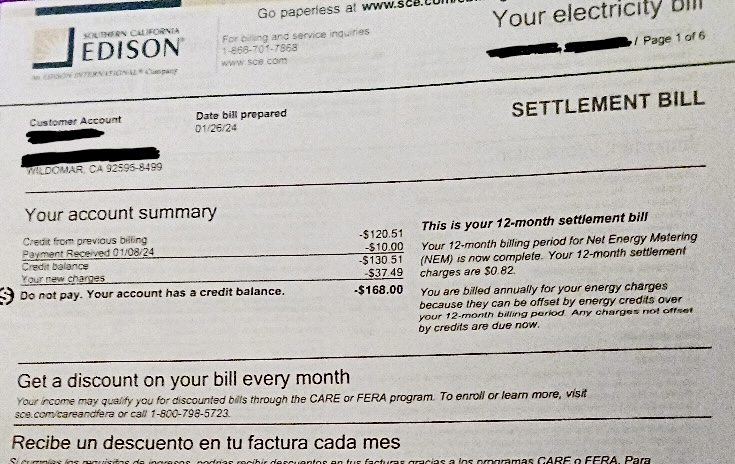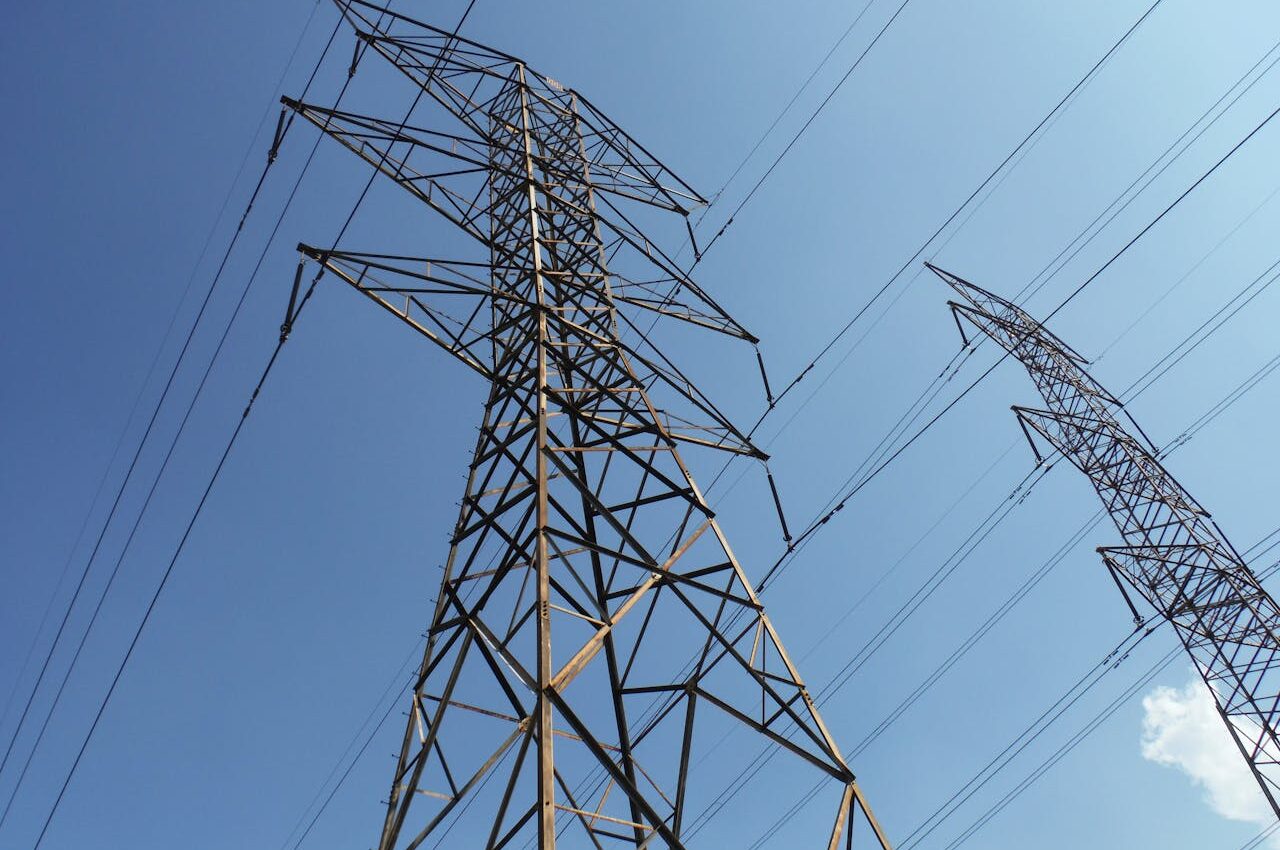A Simple Guide to Understanding Solar Energy Savings
As solar energy becomes an increasingly popular choice for homeowners, you might have come across the term net metering and wondered “What is that, exactly? And how does it benefit you if you decide to go solar? Don’t worry, I’ve got you covered!
What Is Net Metering?
At its core, net metering is like a friendly energy bartering system. It’s a billing mechanism that allows homeowners with solar panels to get credit for the excess electricity their system generates. It acts like a “give-and-take” system with your utility company, helping you save on your electric bill.
Think of it this way: during the day, when the sun is shining bright, your solar panels might produce more electricity than your home uses. The extra energy is sent to the grid and your utility company “banks” it for you. At night or on cloudy days, when your panels aren’t producing as much, you can use those banked credits to offset the energy you pull from the grid.
How Does Net Metering Work?
Net metering requires a special two-way electric meter that tracks the flow of electricity in both directions. Here’s a simplified step-by-step look at how net metering functions:
- Solar Energy Production: During the day, your solar panels convert sunlight into electricity. If you produce more electricity than you consume, the surplus energy is sent back to the grid.
- Meter Running Backward (Excess Energy Production): When your solar panels send excess energy to the grid, your electric meter runs backward, effectively reducing your total electricity usage.
- Energy Credits: For every kilowatt-hour (kWh) of excess energy sent back to the grid, you earn a credit on your utility bill.
- Energy Consumption (Using Credits or Purchasing Electricity From The Utility Company): At night or during times of low solar production, you draw power from the grid. The credits you’ve accumulated can be used to cover the cost of this electricity, effectively lowering your bill. If you don’t have any credits with the utility company, you will see a charge for the amount of electricity you used.
The Benefits of Net Metering
- Lower Electricity Bills: The most significant advantage of net metering is the potential for huge savings on your monthly utility bill. With net metering, you can offset the electricity you use with the excess you produce, often resulting in credits (a negative bill) or a much lower or even zero-dollar electric bill.
- Maximizing Solar Investment: Net metering helps you get the most out of your solar panel investment. It ensures that no energy produced by your system goes to waste, maximizing the return on your investment. This means you get the full value for the energy your panels produce, even if you don’t use it all right away.
- Support Clean Energy: By sharing your solar power with the grid, you’re helping reduce reliance on fossil fuels. Plus, when you send excess energy back to the grid, you’re helping to supply other homes with renewable power, further contributing to environmental sustainability.
Here is a bill example of a home with solar panels receiving credits because their system is producing more electricity than they use. Their Settlement Bill or True-Up is negative, showing a $168.00 credit with the utility company.

Understanding Net Metering Policies
While net metering is an excellent incentive for solar adoption, it’s essential to understand that policies can vary depending on your location and utility provider. Some states and utility companies offer full retail value for the energy you send to the grid, while others provide a reduced rate. It’s important to check your local policies to understand how much you will benefit.
Here are a few factors to consider:
- Credit Rate: Some utility companies offer a 1:1 credit for the excess energy you produce, meaning you get a full retail rate for each kWh. Others might offer a lower rate, called an “avoided cost” rate, which is less than the retail price. Areas that offer lower rate for excess electricity often install batteries to store the surplus power instead of sending it to the grid.
- Annual True-Up: Many utilities have an annual “true-up” period where they calculate the total credits earned versus the electricity consumed throughout the year. If you’ve earned more credits than you used, you may be compensated for the excess, though the payout rates vary.
- Cap Limits: Some states or utility companies have a cap on the total amount of net-metered energy allowed, which can impact how much credit you receive if the cap is reached.
**Net metering policies can change, especially as the number of solar installations grows. Staying informed about local regulations is crucial to understanding how it may affect your solar savings.
Changes In Net Metering: Where It’s Headed
In recent years, net metering has seen some shifts. Utilities in some areas are adjusting how they compensate for excess solar energy, often lowering the value of credits. This is sometimes called Net Billing or Time-of-Use Billing, where the value of your solar energy depends on when you produce and use it.
While these changes may seem like a downside, they’re a sign of the evolving energy landscape as more people adopt solar. The key is to understand your utility’s specific policies and adapt your system and energy use accordingly to get the most out of your solar system.
How to Get Started with Net Metering
If you’re considering going solar and want to take advantage of net metering, here’s how you can start:
- Check Local Net Metering Policies: Contact your local utility provider or a solar company to understand the specific net metering rules in your area.
- Go Solar!: Work with a reputable solar company like Powur to design and install a system that meets your energy needs. The company you work with will typically handle the necessary paperwork to set up net metering with your utility company.
- Monitor Your Usage: Once your solar panels are installed and connected to the grid, you can monitor your energy production and usage through a solar monitoring app. This helps you track your savings and understand how net metering is benefiting you. Learn how to maximize your solar savings by tracking your energy production and usage.
- Consider Batteries: Adding battery storage can give you more control over your energy use and reduce your reliance on the grid.
Is Net Metering Right for You?
Net metering is a fantastic option for many homeowners, but it’s not one-size-fits-all. It can drastically reduce your electric bills and increase the financial returns on your solar investment. However, whether it’s right for you depends on your location, your utility company’s policies, and your home’s energy needs. Net metering is ideal if:
- Your utility company offers favorable net metering policies
- Your solar system produces more energy than your home needs during the day
- You’re looking to lower your electric bills and maximize your solar investment
- At Powur, we help homeowners navigate these decisions and tailor solar solutions that maximize savings. If you’re ready to explore solar energy and learn more about how net metering can benefit you, reach out for a free consultation.
The Bottom Line
Net metering is a game-changer for solar energy users. It allows you to use the grid as a kind of “battery,” storing the value of your excess energy and drawing on it when needed. By understanding how it works and staying informed about your local policies, you can set yourself up for success in the transition towards a sustainable, cost-effective living.




